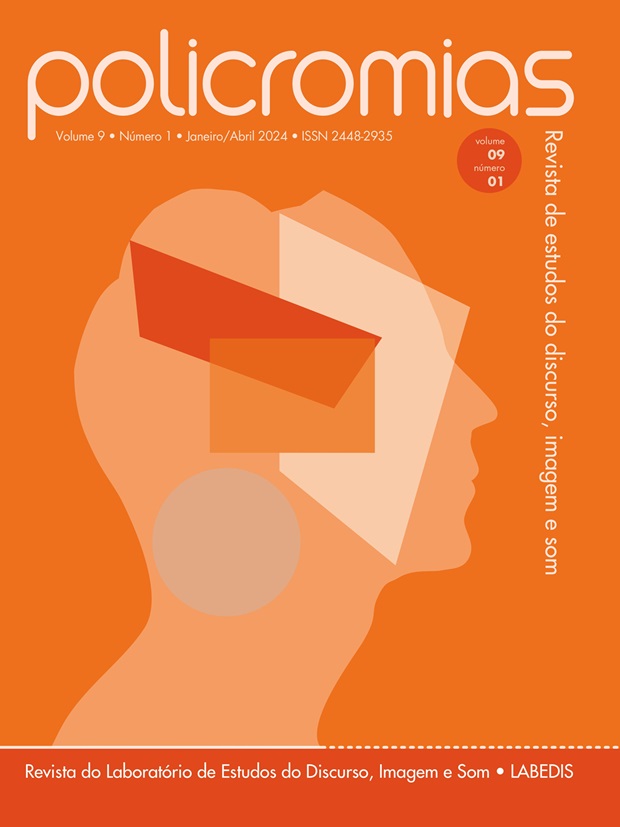SUJEITO E (DES)ESPERANÇA: CARLOS DRUMMOND DE ANDRADE E A PANDEMIA
DOI:
https://doi.org/10.61358/policromias.2024.v9n1.62513Abstract
This theoretical essay aims to reflect on how the poetry of Carlos Drummond de Andrade (1902-1987) can be a trigger for a reading of the world in the context of the COVID-19 pandemic. The corpus was composed of poems from Alguma poesia (originally published in 1930) and Antologia poética (originally published in 1962). The theoretical reference used was the Pecheutian discourse analysis, AD (in Portuguese). Beyond a literary vision that associates the author's ability to surpass his reality, becoming timeless, discourse analysis helps us understand the perenniality of the human condition captured by the way ideology interpellates the subject, producing an subject that is subjected, impotent, and split in order to, in fact, face his world, which crosses both the context of Drummond's production and the current one. The reflections operated by the interwar context in which Drummond produced a good part of his works are revisited in the pandemic of COVID-19, remaining the indications of a subject that, individually, is incapable of reacting, of promoting change, although he has the illusion of being a psychological subject that everything can and that can be another after the pandemic transit.
Downloads
Published
Issue
Section
License

This work is licensed under a Creative Commons Attribution 4.0 International License.
Os(as) autores(as) dos trabalhos aprovados concordam em ceder à Policromias os direitos não exclusivos de publicação, permanecendo livres para disponibilizar seus textos em outros meios desde que mencionada a publicação da primeira versão na revista. Autorizam, ainda, a revista a ceder seu conteúdo para reprodução em indexadores, repositórios e similares. É vedada a tradução para outro idioma sem a autorização escrita do Editor, ouvida a Comissão Editorial. A responsabilidade do conteúdo dos artigos é exclusiva dos autores.
